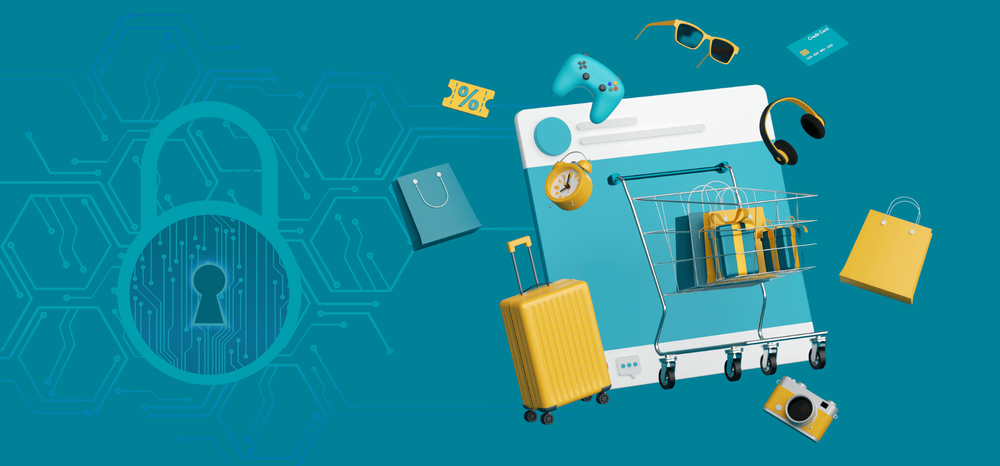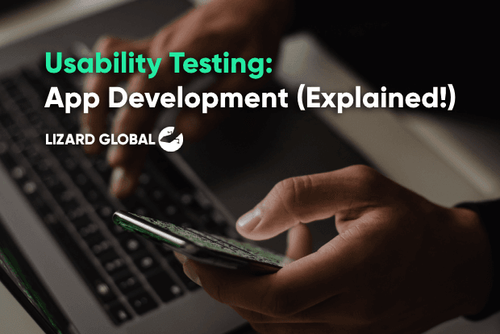Best Practices for Developing Secure and Scalable eCommerce Platforms
Get the latest updates about our blog posts.
Subscribe so you don’t miss out!
Key Takeaways
- Prioritize Cybersecurity: Implement SSL encryption, Multi-Factor Authentication, and conduct regular security audits to protect sensitive customer data from cyber threats.
- Leverage Cloud Solutions for Scalability: Cloud platforms offer on-demand resources that grow with your business, ensuring optimal performance during traffic surges without costly hardware investments.
- Mobile Optimization is a Must: With mobile commerce on the rise, ensure your platform provides a smooth and responsive mobile experience to capture more customers and reduce bounce rates.
- Integrate Secure Payment Gateways: Choose PCI-DSS-compliant payment gateways and offer multiple payment options to enhance security and convenience for your customers.
- Use Agile Development and CI/CD Pipelines: Adopt agile methodologies and continuous integration to release new features, updates, and security patches efficiently without disrupting the user experience.
The eCommerce industry continues to evolve, with businesses looking to cater to a global customer base, increase conversion rates, and offer seamless shopping experiences. But with growth comes the need for robust systems that not only provide a high-quality user experience but also protect against increasing cyber threats and scale as your business expands.
If you're venturing into the world of eCommerce or planning to optimize your existing platform, it's crucial to develop a foundation that's secure, scalable, and customer-focused.
Let’s dive into the best practices that ensure your eCommerce platform remains secure, agile, and ready for future growth.
1. Prioritize Cybersecurity from Day One
When you think of eCommerce, think of the personal data your platform handles daily: customer names, payment information, addresses, and even purchase history. This data is highly sensitive, which means any security breach can seriously damage your reputation and bottom line.
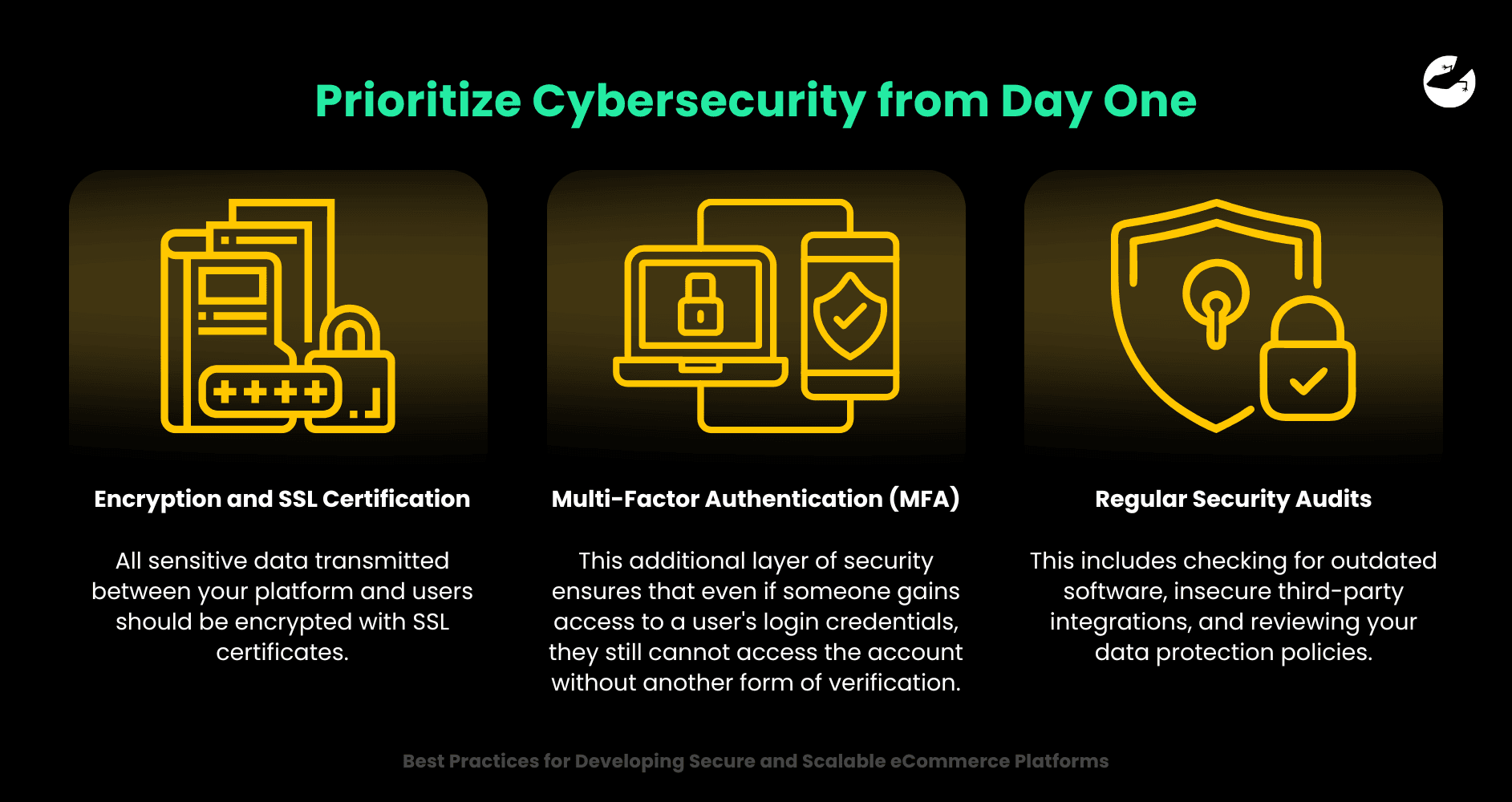
One of the most critical aspects of developing a secure eCommerce platform is implementing industry-standard security measures from the beginning.
Encryption and SSL Certification
First and foremost, encryption is essential. All sensitive data transmitted between your platform and users should be encrypted with SSL certificates. This ensures that customer information is protected from potential threats such as man-in-the-middle attacks.
SSL certificates also boost customer confidence by displaying a "secure" padlock in their browser address bar, signaling that their information is safe.
Multi-Factor Authentication (MFA)
To reduce unauthorized access, integrate Multi-Factor Authentication (MFA) for both customers and administrators.
This additional layer of security ensures that even if someone gains access to a user's login credentials, they still cannot access the account without another form of verification, such as a one-time password sent to their phone.
Regular Security Audits
Regular security audits help identify vulnerabilities that could be exploited by cybercriminals.
This includes checking for outdated software, insecure third-party integrations, and reviewing your data protection policies. Being proactive about these audits will keep your platform one step ahead of potential attackers.
2. Optimize for Scalability with Cloud Solutions
As your eCommerce business grows, the need to scale your infrastructure quickly and efficiently becomes paramount. One of the most effective ways to scale your platform is by utilizing cloud solutions.
Cloud computing allows you to add resources (storage, processing power, etc.) on demand, ensuring that you’re always prepared for spikes in traffic, such as during holiday sales or product launches.
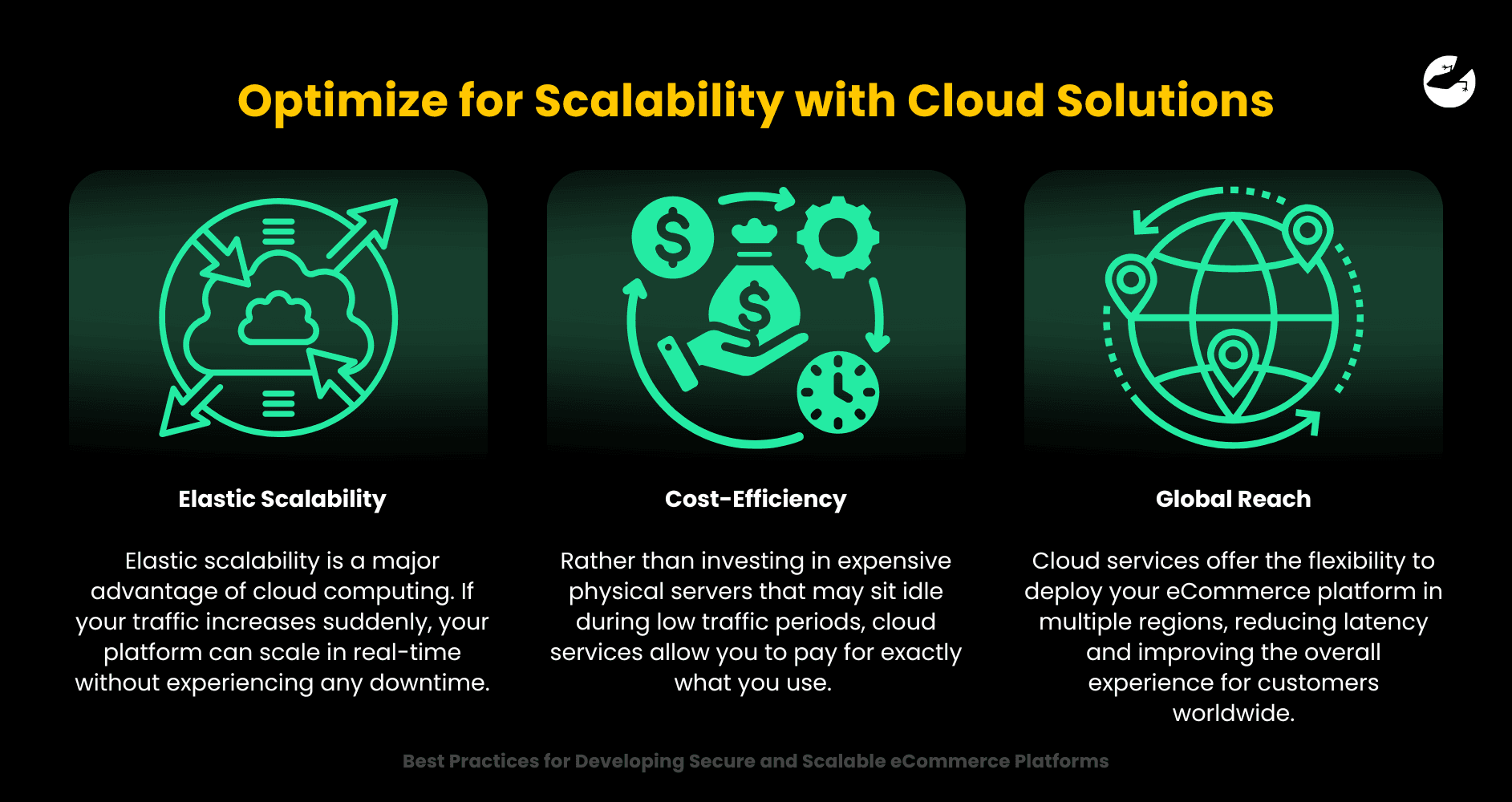
Elastic Scalability
Elastic scalability is a major advantage of cloud computing. If your traffic increases suddenly, your platform can scale in real-time without experiencing any downtime.
This is particularly important for eCommerce platforms, as slow load times and downtime can lead to lost sales, frustrated customers, and damage to your reputation.
Cost-Efficiency
Cloud infrastructure is also cost-effective. Rather than investing in expensive physical servers that may sit idle during low traffic periods, cloud services allow you to pay for exactly what you use.
As your sales grow, you can scale your cloud resources without worrying about upfront capital costs or maintaining physical hardware.
Global Reach
If you're expanding into international markets, cloud services offer the flexibility to deploy your eCommerce platform in multiple regions, reducing latency and improving the overall experience for customers worldwide.
3. Enhance User Experience (UX) with Mobile Optimization
Mobile commerce is on the rise, with more consumers than ever shopping via smartphones and tablets. If your eCommerce platform isn’t optimized for mobile, you’re missing out on a massive potential customer base. Mobile optimization should be an integral part of your platform’s design from the start.
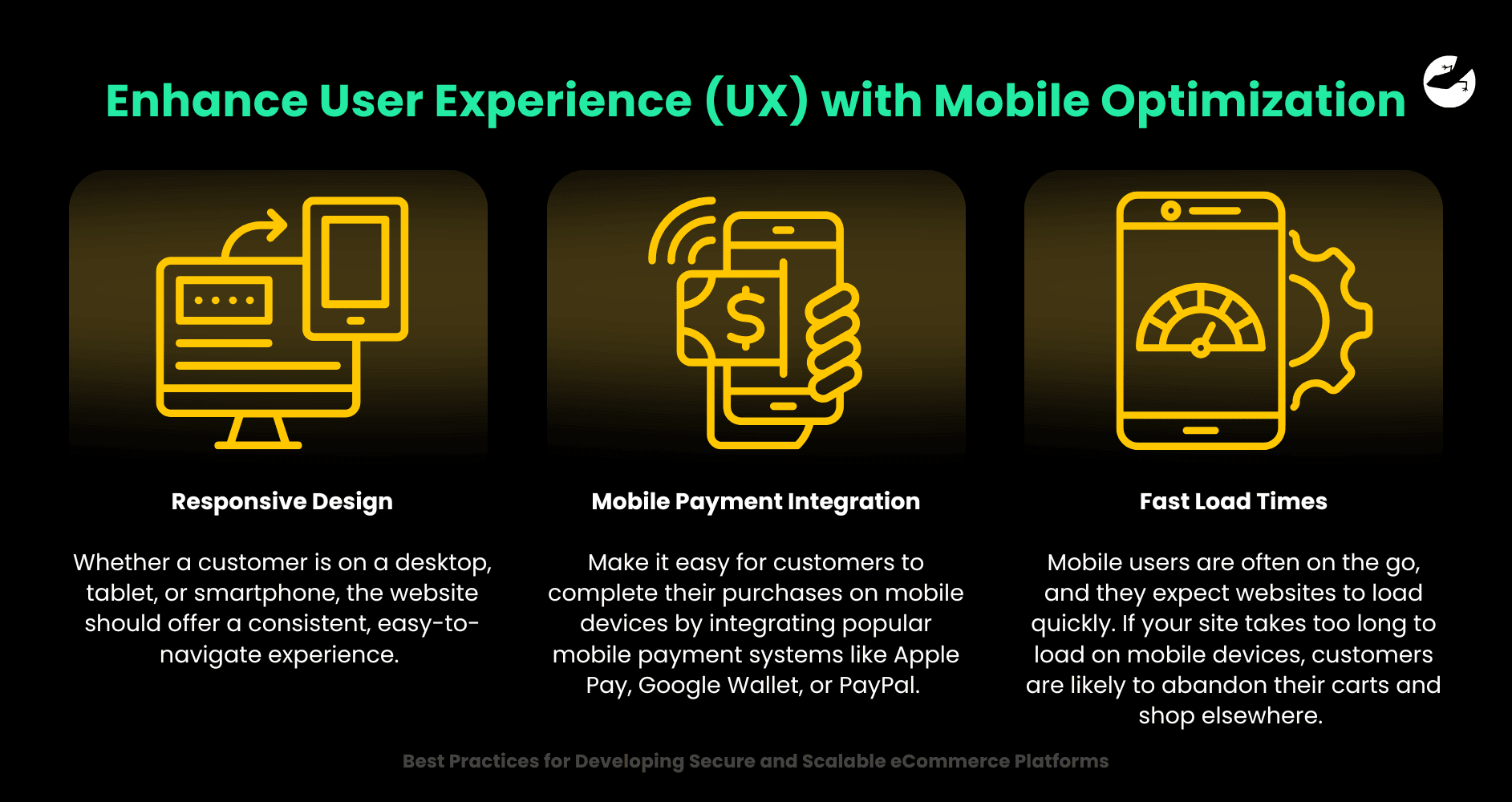
Responsive Design
A responsive design automatically adjusts the layout of your website to fit the screen size of the device being used. Whether a customer is on a desktop, tablet, or smartphone, the website should offer a consistent, easy-to-navigate experience.
Mobile-friendly sites have been proven to increase engagement, reduce bounce rates, and improve conversion rates.
Mobile Payment Integration
Make it easy for customers to complete their purchases on mobile devices by integrating popular mobile payment systems like Apple Pay, Google Wallet, or PayPal.
These systems provide a secure and convenient payment experience, encouraging customers to complete their purchases without switching to a desktop.
Fast Load Times
Mobile users are often on the go, and they expect websites to load quickly. If your site takes too long to load on mobile devices, customers are likely to abandon their carts and shop elsewhere.
Compressing images, optimizing code, and leveraging content delivery networks (CDNs) are all great ways to improve mobile site speed.
4. Integrate Payment Gateways Securely
Choosing the right payment gateway for your eCommerce platform is essential not only for smooth transactions but also for security and scalability.
Payment gateways process sensitive payment information and should be chosen carefully to ensure both security and ease of use for your customers.
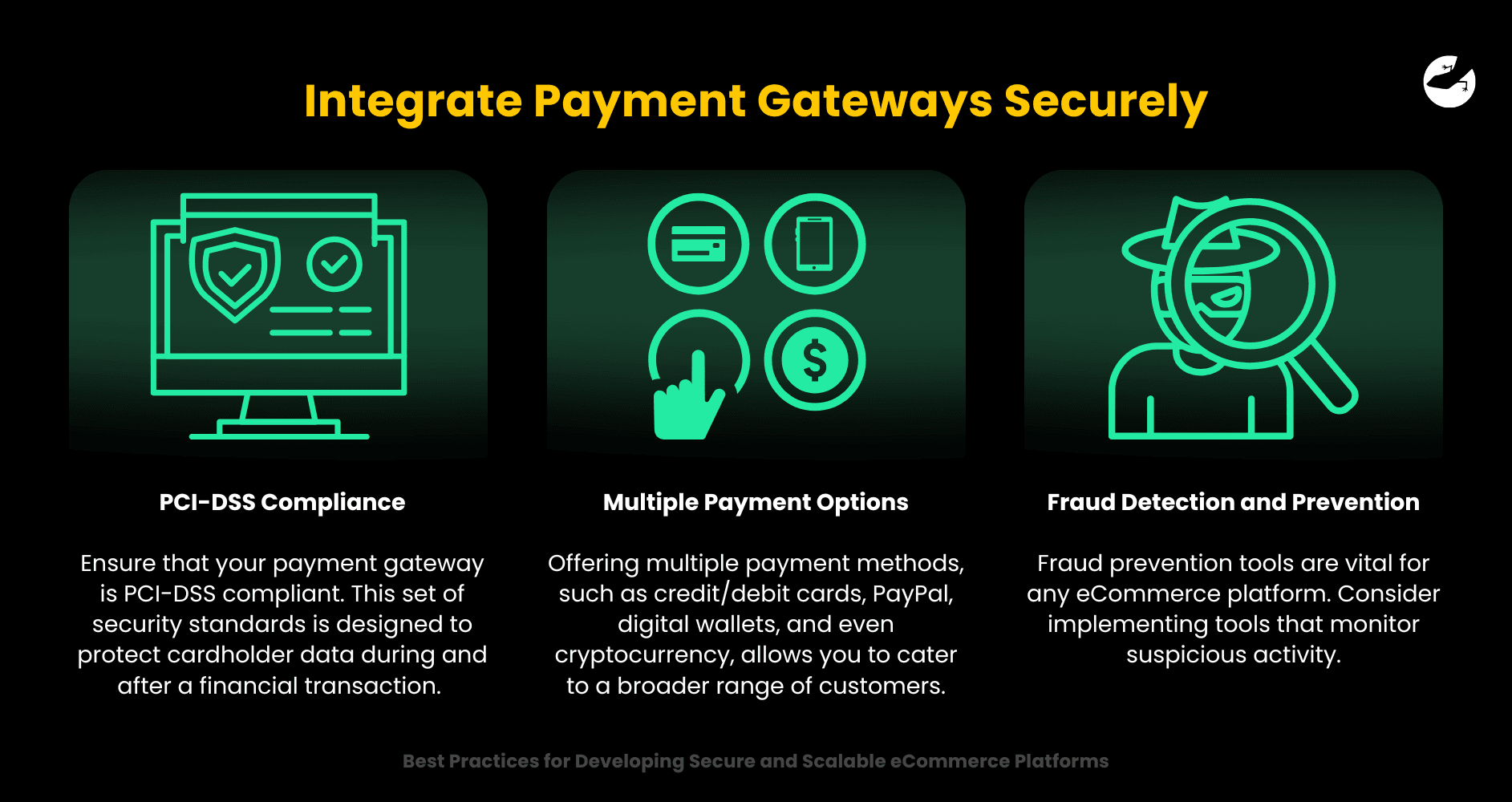
PCI-DSS Compliance
Ensure that your payment gateway is PCI-DSS compliant. This set of security standards is designed to protect cardholder data during and after a financial transaction.
Non-compliance could expose your business to severe penalties and compromise your customers’ financial information.
Multiple Payment Options
Offering multiple payment methods, such as credit/debit cards, PayPal, digital wallets, and even cryptocurrency, allows you to cater to a broader range of customers.
The more payment options you provide, the more likely customers will complete their transactions without encountering payment friction.
Fraud Detection and Prevention
Fraud prevention tools are vital for any eCommerce platform. Consider implementing tools that monitor suspicious activity, such as unusual transaction volumes or flagged IP addresses, to protect your business and customers.
Additionally, setting up real-time alerts for high-risk transactions will give you the opportunity to take immediate action.
5. Implement Robust Inventory and Order Management Systems
Managing inventory and orders efficiently is crucial for an eCommerce platform, especially as your business grows. A robust inventory and order management system ensures that stock levels are always accurate, orders are processed smoothly, and customers receive their products on time.
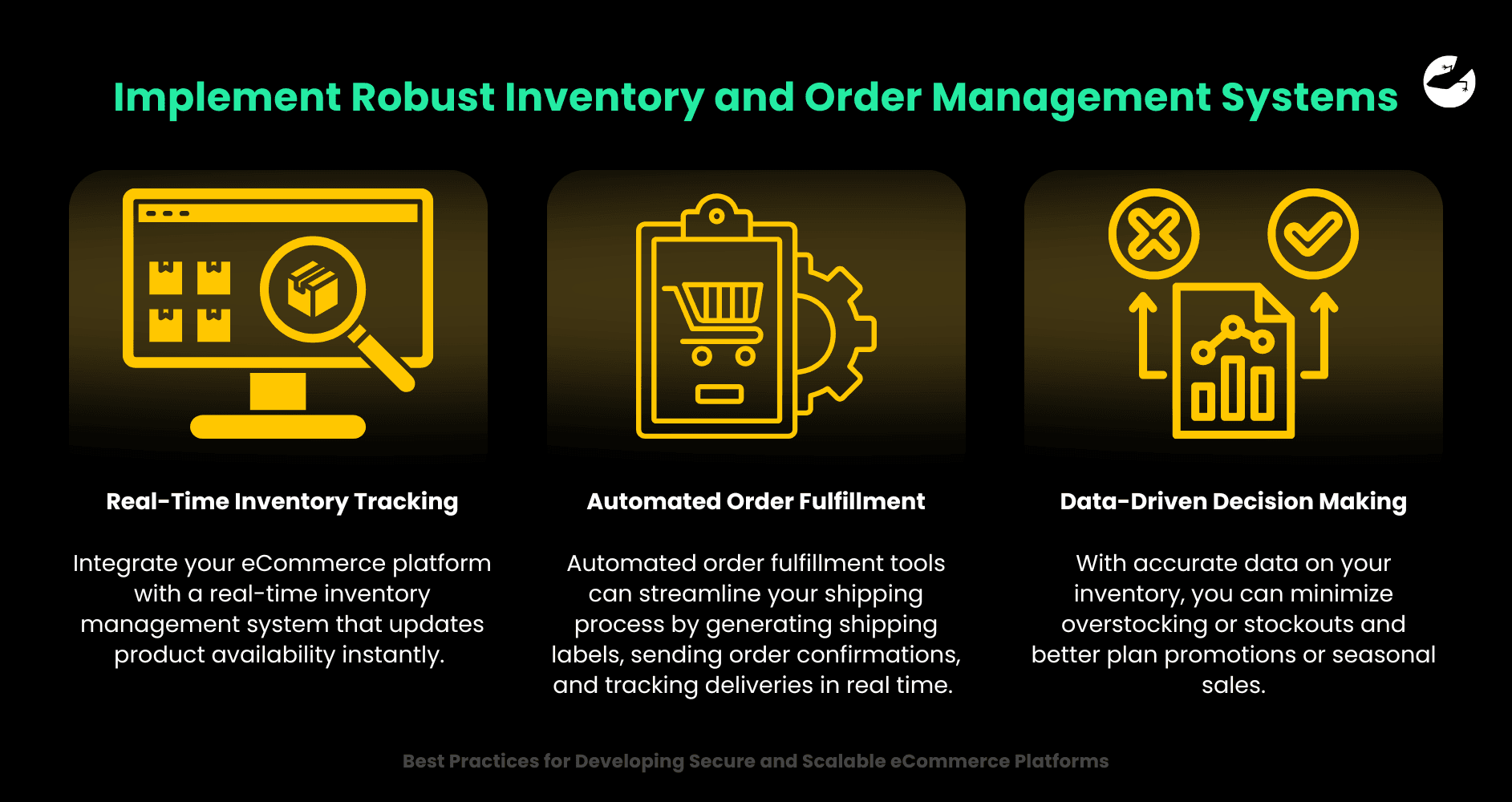
Real-Time Inventory Tracking
Integrate your eCommerce platform with a real-time inventory management system that updates product availability instantly.
This prevents situations where customers can order items that are out of stock, which leads to frustration and canceled orders.
Automated Order Fulfillment
Automated order fulfillment tools can streamline your shipping process by generating shipping labels, sending order confirmations, and tracking deliveries in real time.
This reduces manual errors, ensures faster deliveries, and provides customers with a seamless shopping experience.
Data-Driven Decision Making
Collect and analyze sales data to better forecast demand, optimize stock levels, and improve purchasing decisions.
With accurate data on your inventory, you can minimize overstocking or stockouts and better plan promotions or seasonal sales.
Want to find out how much it costs to build your dream app or web app?
6. Adopt Agile Development and Continuous Integration
The pace of change in eCommerce is rapid, with customer expectations evolving and new technologies emerging regularly. To keep up, it’s essential to adopt agile development practices and continuous integration (CI) strategies.
Agile Development Methodology
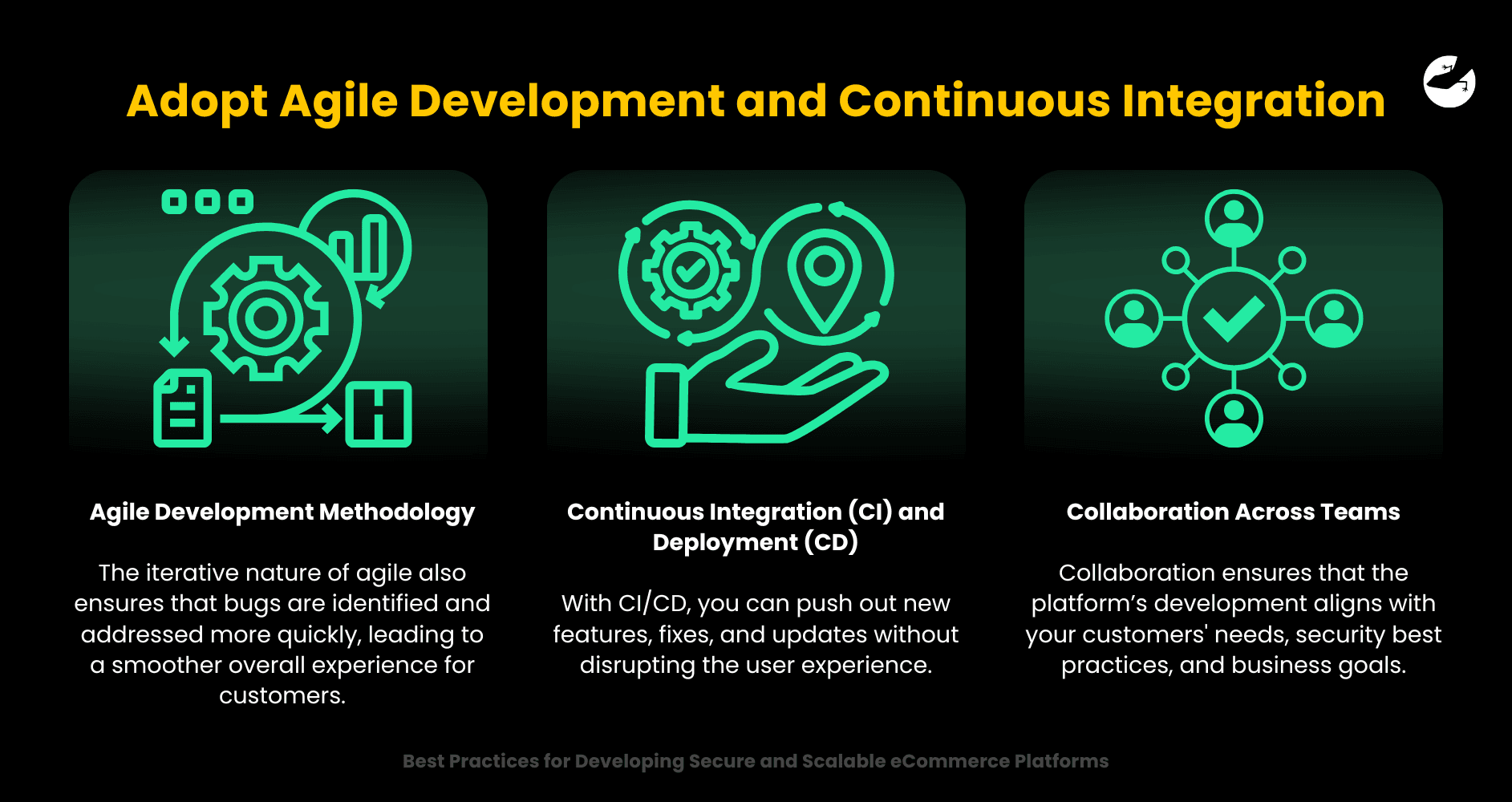
Agile allows you to break your development process into smaller, more manageable chunks. With frequent updates, features, and improvements, you can respond to customer feedback and market changes much faster.
The iterative nature of agile also ensures that bugs are identified and addressed more quickly, leading to a smoother overall experience for customers.
Continuous Integration (CI) and Deployment (CD)
CI/CD pipelines ensure that new code is tested, integrated, and deployed efficiently. This eliminates the risk of deploying faulty code that could break your platform or introduce security vulnerabilities.
With CI/CD, you can push out new features, fixes, and updates without disrupting the user experience.
Collaboration Across Teams
Agile development fosters collaboration across cross-functional teams, including designers, developers, and product managers.
This collaboration ensures that the platform’s development aligns with your customers' needs, security best practices, and business goals.
Lizard Global's Expertise in Building Secure and Scalable eCommerce Platforms
Developing a secure, scalable, and user-friendly eCommerce platform requires a strategic approach, with attention to every detail from cybersecurity to mobile optimization.
As the CEO and co-founder of Lizard Global, Jeremy always says, “we pride ourselves on helping businesses implement these best practices and create platforms that not only grow with your business but also provide a safe and seamless shopping experience for your customers.”
Our expertise in custom software development, cloud solutions, and agile methodologies ensures that your eCommerce platform is built to last and ready for the future.
If you're looking for a partner to help you develop a secure, scalable eCommerce platform, Lizard Global has the experience and knowledge to turn your vision into reality.
Reach out today. to learn how we can help you build a platform that stands the test of time.
